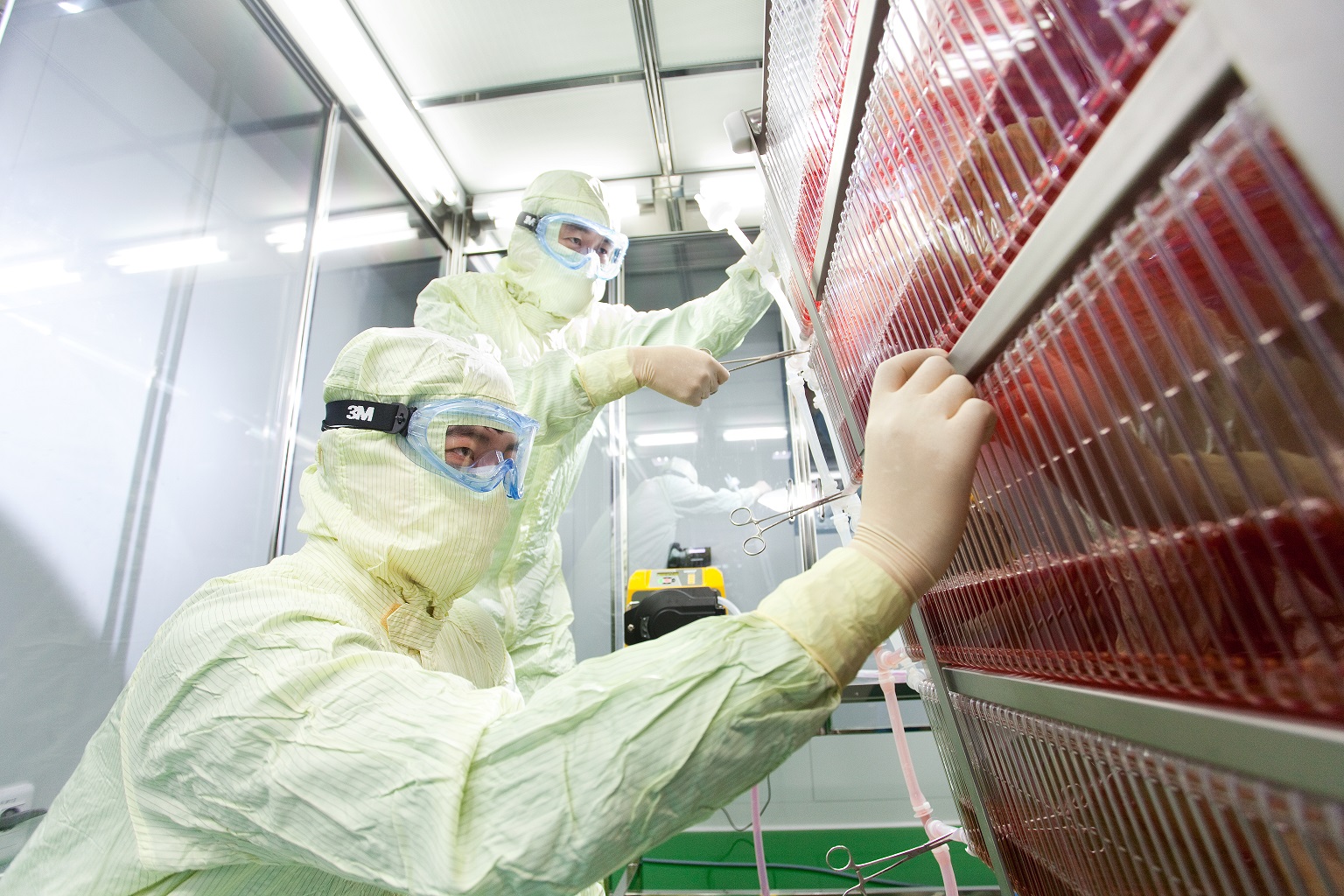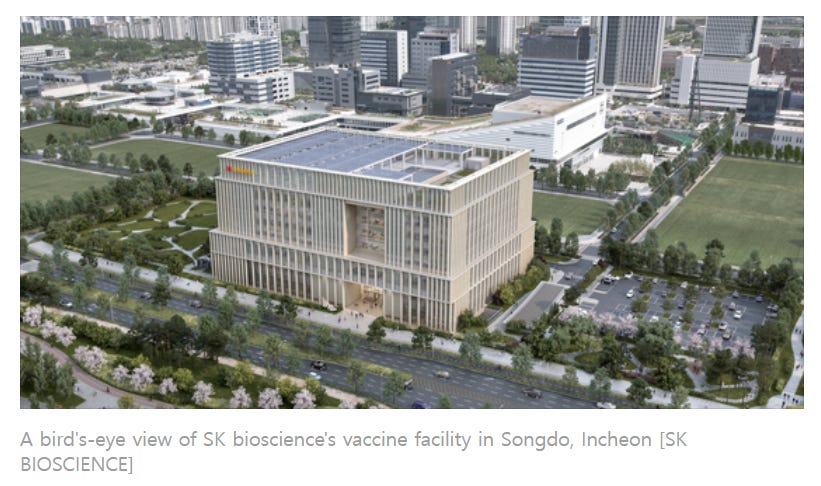South Korea is a model of mRNA failure, and cancer cases are on the rise…
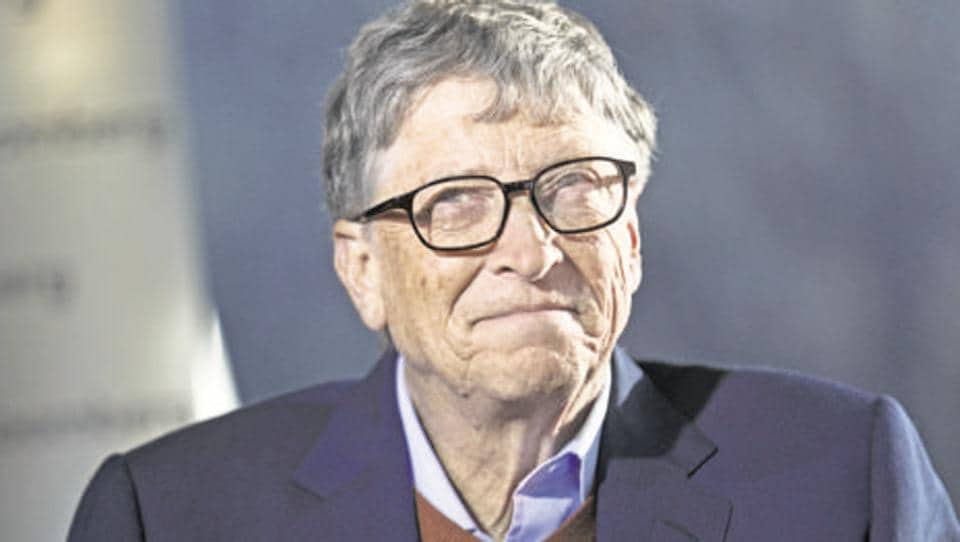
South Korea claims a 85.8% fully COVID-19 vaccinated rate, with over 130.6 million doses administered (Pfizer 62%, Moderna 20%, AZ 16%, JJ 1%) (click here).
It is a model of COVID-19 mRNA vaccine failure.
South Korea’s COVID-19 booster rollout appears to have driven ever increasing waves of COVID-19 infection and death throughout 2022 and into 2023 (click here).
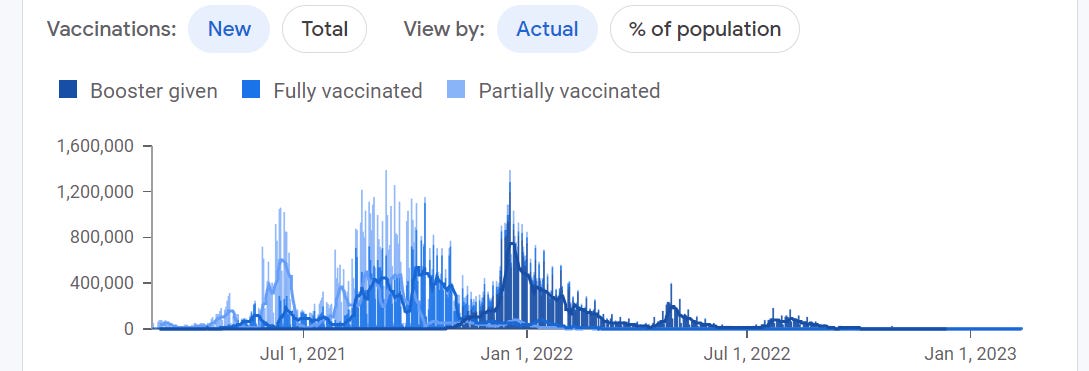
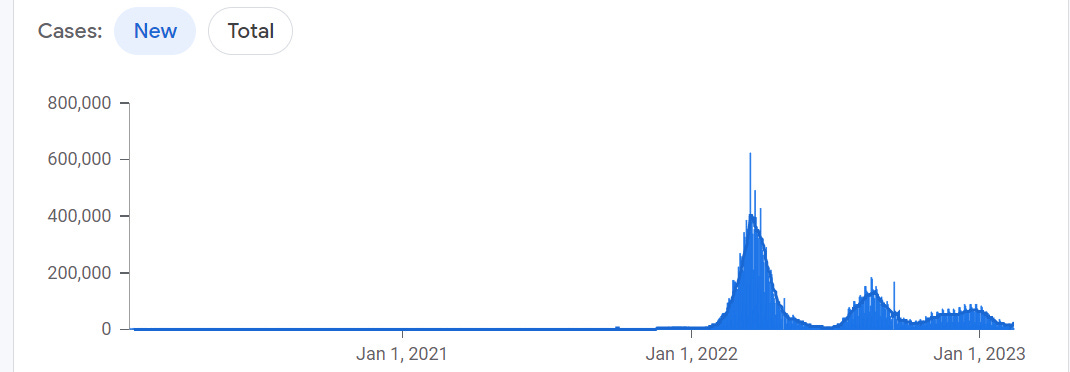
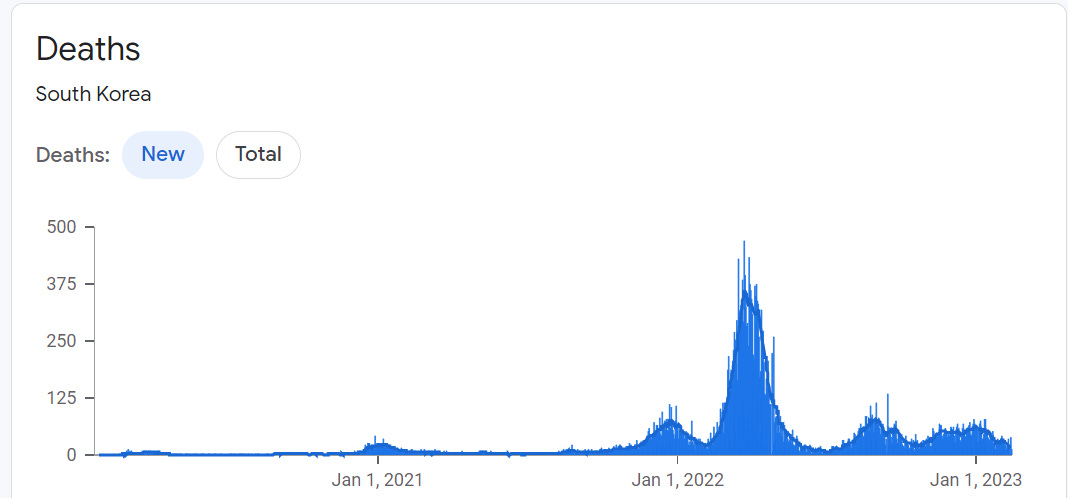
On Feb.8, 2023, Korean news reported that SK bioscience will invest $258 million to build a manufacturing facility “aiming to become a key player in the vaccine industry” (click here)
“SK bioscience cooperated with Bill & Melinda Gates Foundation to develop SKYCovione, Korea’s first domestically-developed COVID-19 vaccine.
The facility is not only for the vaccine but also cell and gene therapy and mRNA technology”
It gets more interesting:
Fierce biotech reports (click here): “SK bioscience…plans to invest $261 million in a R&D hub designed to establish it as a leading force in the global response to new infectious diseases”
“The South Korean company put the planned global research and process development center in Songdo, a so-called smart city 18 miles from Seoul”, at the heart of the strategy…total outlay of $261 million to support the creation of a vaccine/biopharmaceutical hub on the 320,000 square foot site.
“Completion is scheduled for the first half of 2025. Once the site is ready, SK bioscience will relocate its headquarters…to help the company preemptively respond to emerging infectious diseases.
“The establishment of the R&PD Center will be a crucial milestone for us to advance the entire vaccine and biopharmaceutical industry beyond Korea to the world”
“SK bioscience manufactured COVID-19 vaccines for AstraZeneca and Novavax”

SK Bioscience press release Nov.2022 (click here): “Through securing the mRNA technology, product development, and platform expansion, SK bioscience plans to establish a system that can develop vaccines against new infectious diseases within 100 days and supplies them within 6 months with global partners, including Bill & Melinda Gates Foundation, CEPI, and Hilleman Laboratories.”
“SK bioscience also operates ‘Glocalization’ project which transfers vaccine development, manufacturing, and production capabilities to each government and partner companies in the world to establish a vaccine manufacturing infrastructure for the needs in each region”
There seems to be some controversy around alleged tripling of cancer cases in South Korea in 2022 “due to COVID-19 vaccines” (click here)
A Facebook post showed a photo of a datasheet titled: “Massive spike in patients diagnosed with cancer after Covid vaccinations”.
The datasheet is credited to South Korea’s Health Insurance Review and Assessment Service (HIRA), a government agency responsible for reviewing and evaluating healthcare costs and services.
The document says there were between 1.2 million and 1.5 million new cancer cases every year between 2016 and 2021, but that this shot up to more than 3 million new cancer cases in 2022 — the year after South Korea began its Covid-19 vaccine roll-out in February 2021.
While South Korea’s government health insurance agency denies the claim, they don’t deny the increased numbers, only what those numbers mean:
“The numbers seen in this chart represent the number of patients who filed health insurance claims related to cancer each corresponding year, not the number of new cancer patients,” the spokesperson told AFP on February 3.”
“A claim may be recorded each time a person visits the hospital to be treated for cancer, and a patient may visit the hospital several times a year,” they added.
“data for 2021 and 2022 would be released towards the end of the year.”
It is clear that no matter how much mRNA fails, big pharma continues to invest 100s of millions of dollars building new mRNA facilities.
This one is straight out of a dystopian novel. A 320,000 sq ft mRNA factory located in a “smart city” that can produce new mRNA vaccines within 100 days in partnership with Gates Foundation against “new infectious diseases”?
That should concern everyone.
Also, the tripling of cancer related insurance claims isn’t adequately explained by Korean government officials. I suspect cancer cases are skyrocketing and the Korean government is holding back the 2021 and 2022 data on “number of new cancer patients” for a good reason.
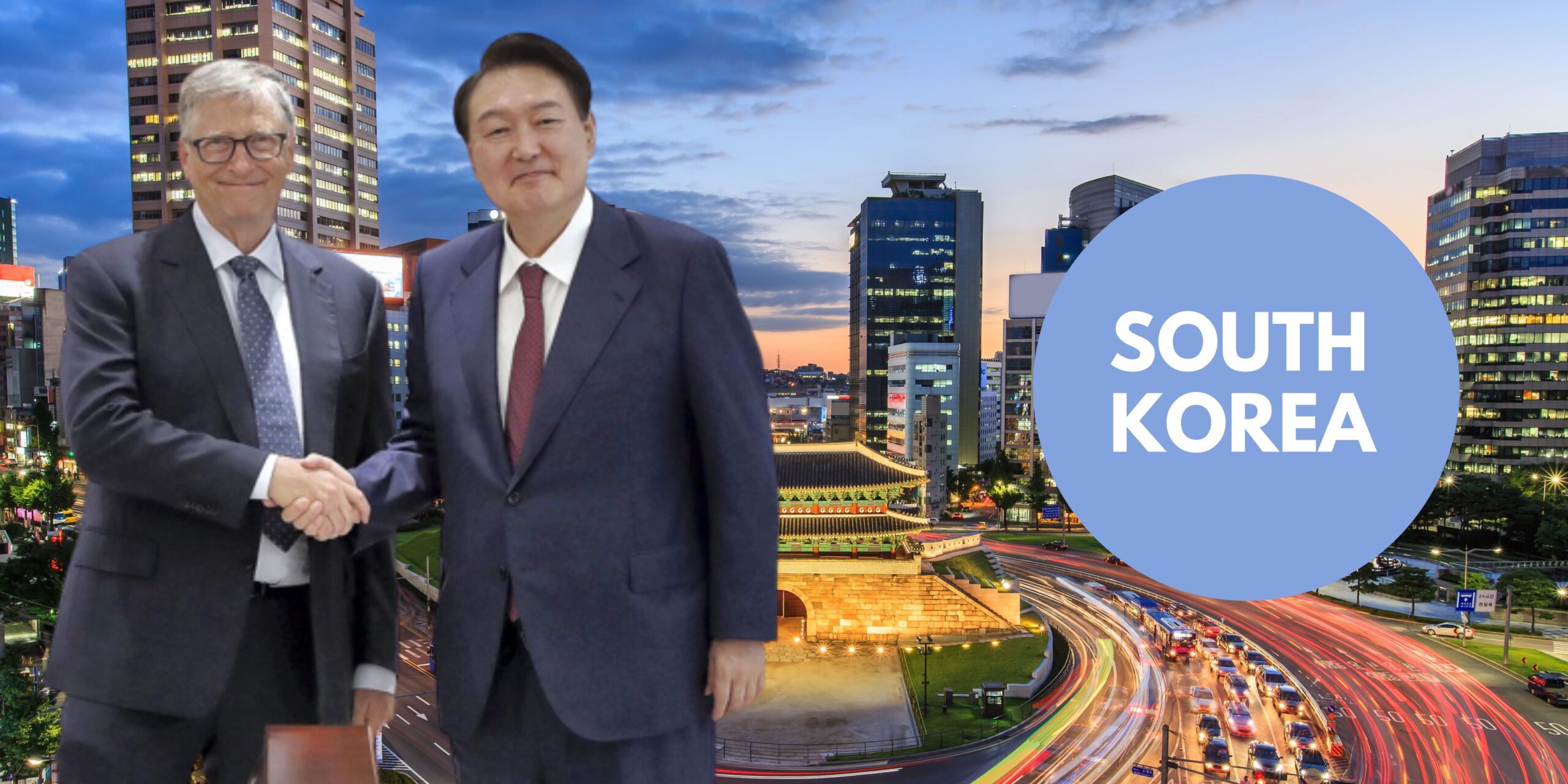
Republished by GR first and then by The 21st Century
The views expressed in this article are solely those of the author and do not necessarily reflect the opinions of 21cir.com.

